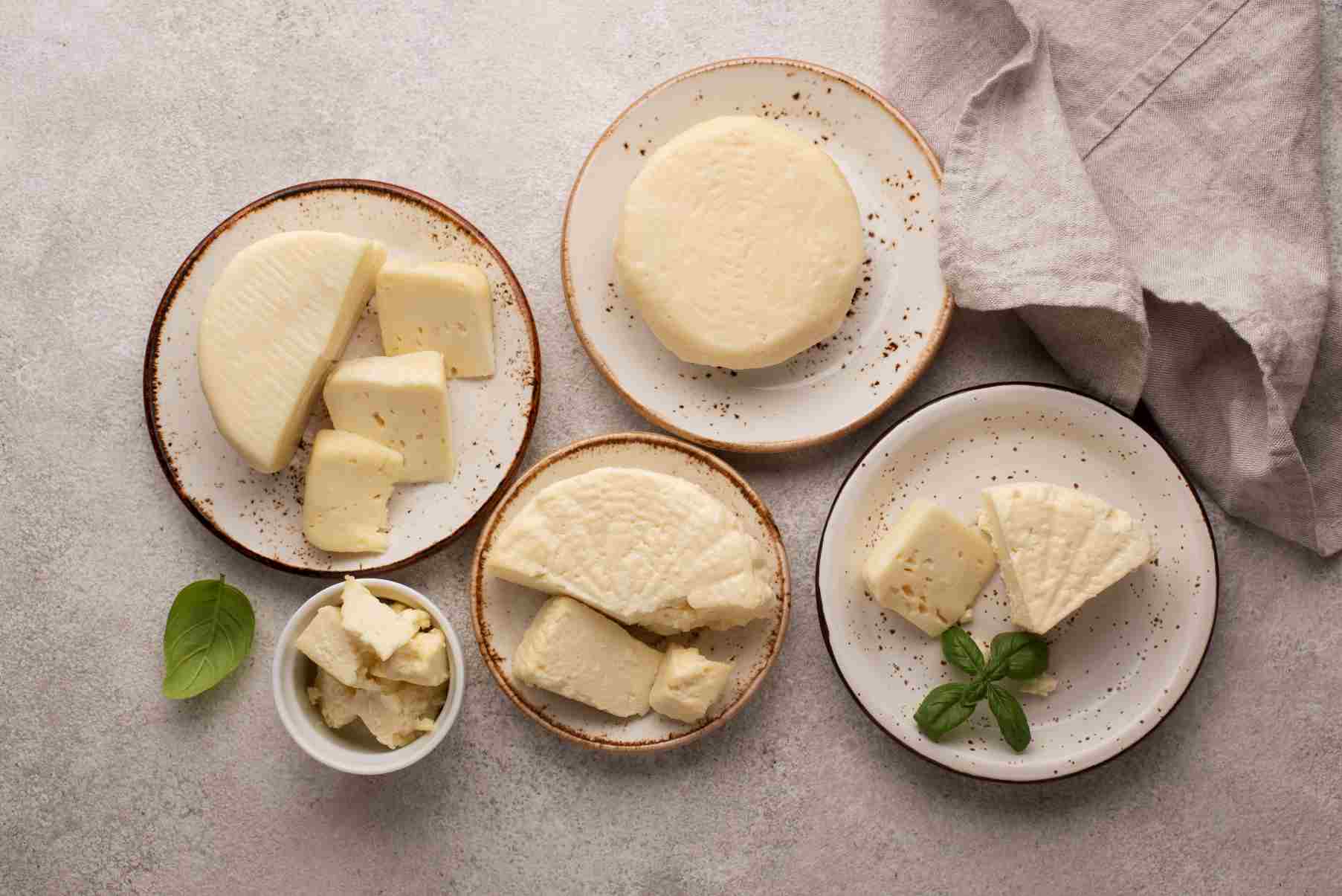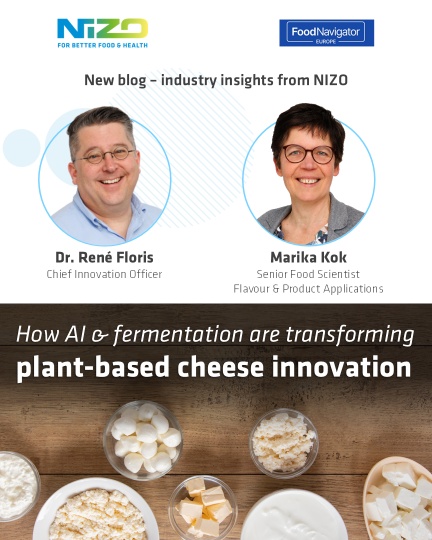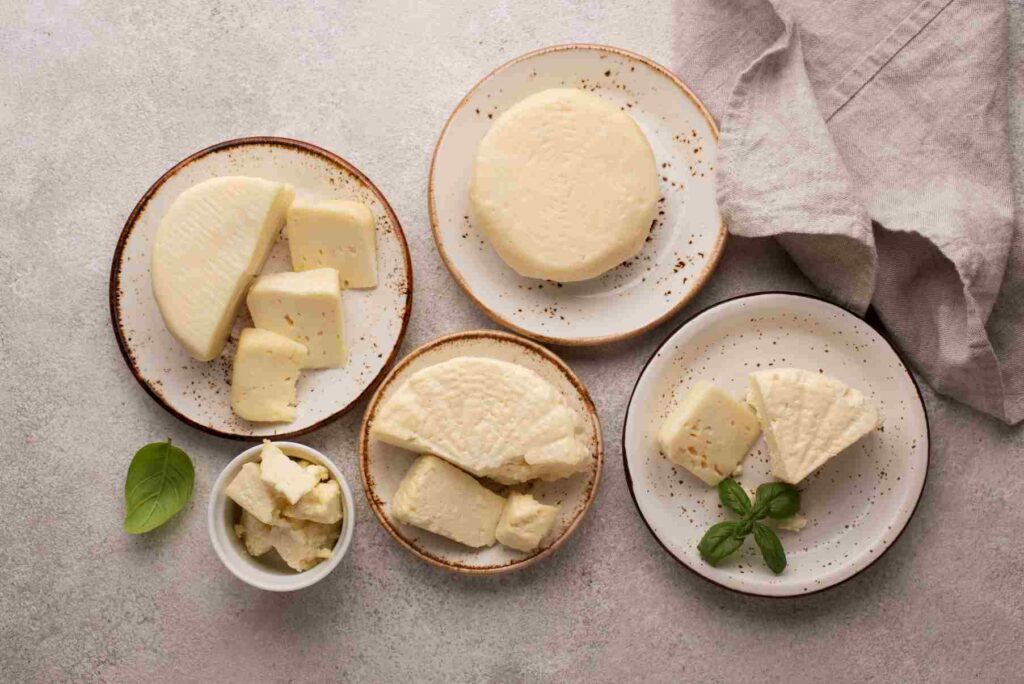How AI & fermentation are transforming plant-based cheese innovation



By Dr. René Floris, NIZO’s Chief Innovation Officer and Marika Kok, NIZO’s Senior Food Scientist Flavour & Product Applications.
Plant-based dairy analogues have made great strides in taste, texture and nutrition. In some areas. There are great plant-based milk and cream cheese alternatives out there. But semi-hard cheeses are a much harder nut to crack. Fermentation could hold the key to plant-based semi-hard cheeses that deliver the taste, texture and nutritional parity to rival dairy.

Plant-based dairy alternatives all follow a similar product evolution. The first generation needs to look right, with no unpleasant flavours. Generation 2 must also perform like dairy: foaming like milk or melting like cheese. Generation 3 adds nutritional parity, particularly protein, vitamin and mineral levels. And generation 4 combines all this with sustainable sources and fewer additives for more natural, clean-label products. While milk alternatives are already on generation 3 or even 4, semi-hard cheese analogues are still struggling in generation 2.
This isn’t surprising. Semi-hard cheeses have a much higher protein content than milk, and plant-based proteins are notorious for off flavours and poor solubility, which has a major impact on texture and mouthfeel. Semi-hard cheeses also have a much more complex structure than milk, one linked to casein micelles that aren’t present in plant-based ingredients.
“The challenge is to increase (plant) protein levels while delivering a familiar cheesy taste and texture and without introducing unpleasant off flavours,” explains Marika Kok, senior food scientist at NIZO.
Artificial flavourings are an option. The industry is making progress here, but an authentic cheese flavour is complex, and we haven’t quite nailed it yet. Moreover, the artificial flavour would need to mask any off flavours. As every plant protein ingredient has its own unique combination of compounds that could produce off flavours, this would be a huge challenge and requires dedicated flavour development for each new product. Artificial flavouring also wouldn’t tackle texture issues – and would increase additives, complicating the step to generation 4.
A more promising option is fermentation. The dairy world has been using fermentation to create flavourful semi-hard cheeses for centuries. In recent years, the plant-based world has been increasingly exploiting fermentation too.
Fermentation adds flavour and texture. It improves stability and shelf life, through acidification and by producing molecules that inhibit the growth of unwanted microbes. It can also be used to remove specific molecules, such as compounds that cause off flavours or anti-nutritional elements, a technique known as bio-purification. And it can bring health benefits too, for example by releasing certain fatty acids or improving digestibility.
“Fermentation does all that while being 100% natural and without adding extra ingredients to the label,” Marika adds. “So, it could propel plant-based semi-hard cheeses from generation 2 into generation 3 and, potentially, even generation 4.”

Dairy fermentation is well understood. Milk is a consistent medium, and centuries of cheesemaking experience has identified appropriate fermentation cultures. The plant-based world, however, is different.
“You can’t just put a familiar dairy culture into a plant-based formulation and expect it to do the same thing,” says Marika. “It will be growing in a completely different environment with different sugars, minerals and enzymes – so it will grow differently and produce different metabolites.”
What’s more, each protein ingredient or product formulation represents a unique growth environment for microorganisms, and there are millions of possible fermentation cultures – with new ones constantly emerging. Each microorganism can produce or remove different molecules and needs specific conditions to thrive.
Finding microorganism(s) that will produce / remove the necessary molecules to create an authentic cheese flavour and texture in a particular product is a huge challenge. But it can be tackled through data.
We now know much more about the genetic structure of microbes and, specifically, how to link DNA sequences to the potential for creating specific enzymes. This opens up the possibility of (AI-assisted) screening fermentable microorganisms to identify promising candidates for improving the flavour, texture and / or stability of a specific plant-based, semi-hard cheese analogue. While the right DNA sequences don’t guarantee an organism will express the desired enzyme in a given product, this kind of screening could produce a feasible short list of candidates for further investigation.
To test this approach, NIZO used its existing database and knowledge of microorganisms to identify and develop veganized cultures that could produce realistic cheese flavours and reduce unpleasant flavours in plant-based products.
“When we taste tested prototypes created with these ‘boutique cultures’, we were amazed. They had a lovely, balanced flavour like a young cheddar or gouda,” says Marika “We think they could be a great basis for further development by manufacturers.”
These prototypes highlight fermentation’s potential to deliver plant-based semi-hard cheeses that match dairy cheeses for taste, texture and nutritional value. But handpicking boutique cultures isn’t a viable approach for mass adoption. Instead, the industry needs to automate the initial screening of candidate organisms for individual products. That’s why NIZO is participating in the Delicious project.
“The Delicious project – supported by the European Union’s Horizon Europe program – is a consortium of universities, research centres and industrial partners that aims to transform the market for plant-based dairy alternatives through microbial and precision fermentation,” Marika explains.
One of its key goals is to enable high-throughput screening through a novel AI-based bioinformatics tool. The final solution will combine two parts. The first uses mechanistic metabolic models to identify the genetic potential of candidate microbes. The second employs machine learning to predict how those microbes will grow on different substrates, and which compounds they will produce / remove.
“A tool like this could drive efficiency and innovation in the development of new plant-based cheese analogues, and accelerate the development of plant-based products that match traditional semi-hard cheeses for taste, texture and nutrition,” adds Marika.
Plant-based, semi-hard cheese alternatives have struggled to take the next step and deliver tastes, textures and nutritional values that truly rival their dairy counterparts. However, fermentation offers an attractive path to that next step and beyond, addressing the taste, texture and stability challenges that come with higher levels of plant proteins – in a natural, artisanal way. By combining high-quality data on microbe characteristics with emerging bioinformatics solutions, the promise of a plant-based, semi-hard cheese analogue that tastes and feels like cheese could be just around the corner.
This article has also been published on Food Navigator – read more here.